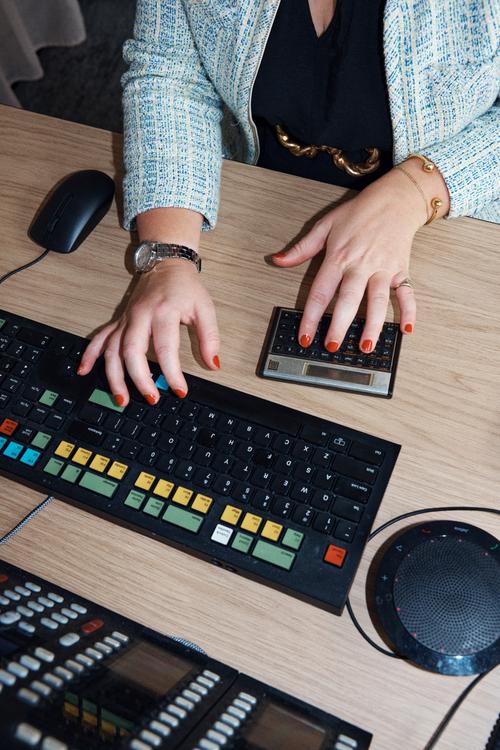The craft of what comes next
Dr Laura Sutcliffe’s job involves advising investors about where the healthcare industry is heading.
Dr Laura Sutcliffe
Healthcare analyst
Based in Sydney, and with UBS since 2019, her role as head of Australian healthcare equity research involves deep analysis and number crunching. She might be listening to a big reveal at a medical conference or talking with doctors, all of which helps her form an expert opinion from the deluge of data about what trends to follow and where stock prices are going.

What does your day-to-day role involve?
Helping our investors identify opportunities, either to buy or sell a stock, in the healthcare space in Australia. My day-to-day job involves looking at pipeline technologies and seeing how they are gaining traction in the healthcare community. We might talk with physicians or patients, and also work with companies that make these things, to understand how they’re making decisions about the future, how they might look to develop new tech or drugs, and then form an opinion on the share price based on that.
It sounds like a balancing act, no?
Stock picking is a balance between the science end and the art of understanding how those technologies are going to impact the market, knowing how to interpret the signals for what people might want, and where the need is. So how are these things going to sell? There is a certain angle to it that is an art and not a science, so I’m balancing both.
Your job is to analyse statistics but there must be an important element in building relationships?
Ultimately making these judgments is about the relationship between the technology and the people. You can have fabulous technologies – we often see this in med tech – but if people don’t want them, there’s a limit to how much impact they ultimately have. Trying to get into the weeds of the relationship between the people and the science is something that’s unique to individual analysts as well. So, if you were to look at my peers across the healthcare space, the way they choose to go about evaluating those opportunities is very individual. So maybe you get people who really can discern the signal from the noise by being heavily numerical. Other people lean more on what they hear from doctors.
What makes you stand out as an analyst?
I’ve now covered major stocks in the US, Europe and the Asia-Pacific region so the first thing that I bring is a global view. But it’s not just about what I bring; I’m also part of a healthcare ecosystem or family here. What I bring to my team – and what we do together – is a kind of craft.

What are some of the new frontiers in healthcare?
The healthcare space has a lot of work to do in neurodegeneration and that’s one of the next frontiers that we’ll be confronting. You can see some of the work that’s been done in things like Alzheimer’s disease but we’ve still got potentially quite big strides to make before we can declare any kind of victory.
So, your job is to speculate on the future?
It’s an art form because it’s about learning to distil things that are complicated in a way that is not only understandable and meaningful, but also investible. And sometimes a concept can be very intriguing and very satisfying to understand – but it’s not necessarily an investible one.


